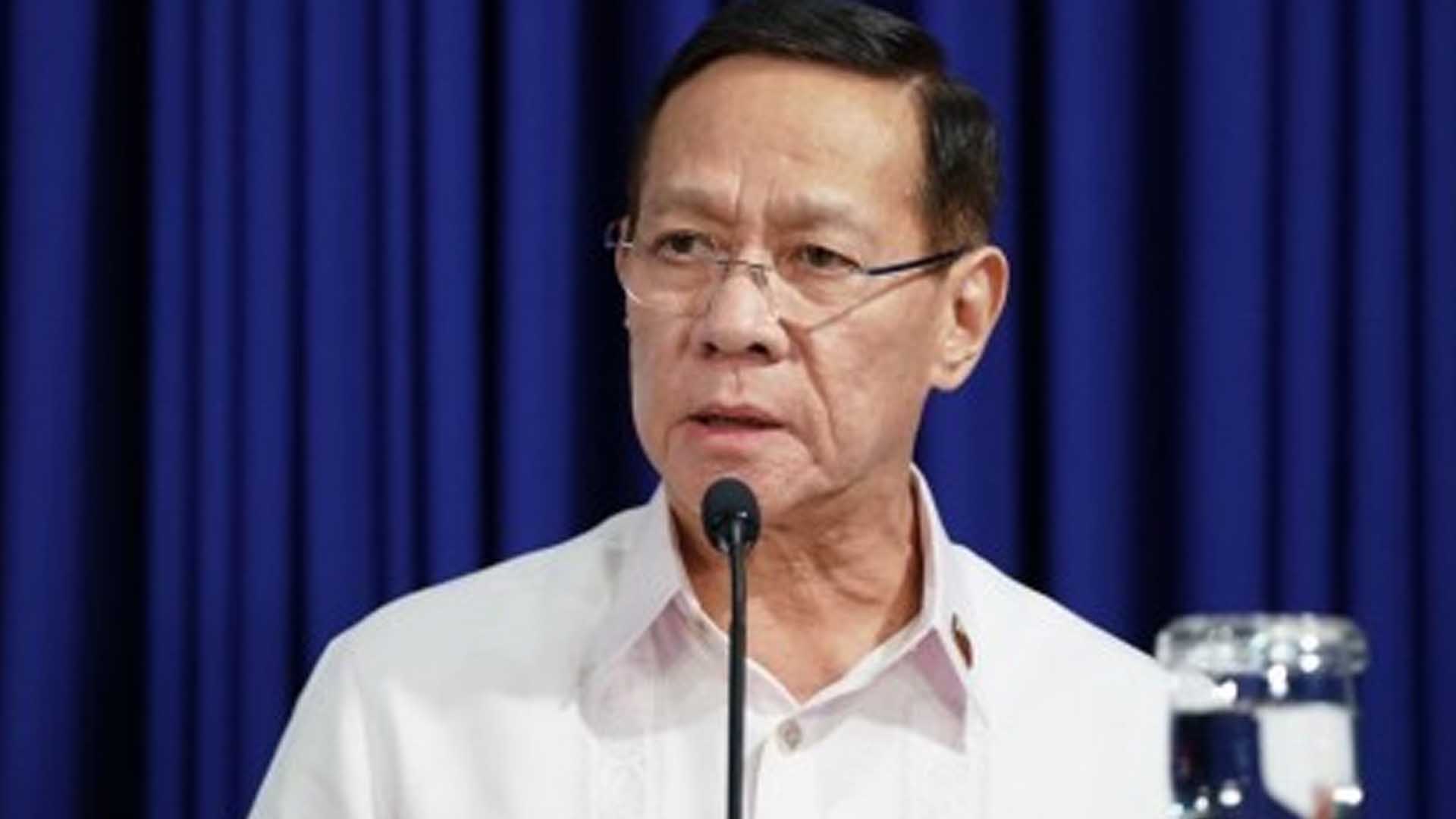Health Secretary Francisco Duque III on Monday said the reason behind the impression that the health department is underreporting the number of persons who tested positive for the new coronavirus disease (Covid-19) in the country is due to “limited testing supplies.”
In a Laging Handa press briefing in Malacañang, Duque explained that limited supply of testing kits has prompted the department to be “prudent” in conducting Covid-19 confirmatory tests.
“We have to rationalize our testing, yung mga tingin natin may sintomas at yung (those with symptoms and those with) history of travel, history of exposure para (so that) we will be prudent in the use of our very limited supplies,” he said.
He, however, assured that the Department of Health (DOH) will be able to expand the coverage of those who will be tested once they acquire more testing kits.
“Later on, we will do some calibrated approach to expanding who should be prioritized but at the moment given the limited supply, we have to be very, very prudent in the way we do our tests,” he said.
On the other hand, he said the World Health Organization (WHO) has been “very helpful” in terms of testing kits.
Right at the moment, he said the DOH’s testing capacity is about 4,500 individual testing kits.
Dr. Rabindra Abeyasinghe, WHO Representatives in the Philippines, said the WHO will again deliver about 2,000 testing kits within the week.
Earlier, Senator Panfilo Lacson said the DOH could be underreporting, although unintentionally, information on the highly-contagious disease if it had insufficient number of testing kits.
“It begs the question: Do we have a sufficient number of testers to cover a decent number of our population especially in the more vulnerable areas of the country? If not, the DOH may be underreporting albeit unintentionally,” Lacson said.
The country has now 20 confirmed cases, including 10 new cases reported by the DOH on Monday.
Full disclosure
Amid criticism that DOH is underreporting the Covid-19 cases in the country, Duque assured that the department will be disclosing hospital names after coordination with hospitals to combat unverified or fake news.
He also reassured the public that the country’s hospitals have infection prevention and controlled practices in place.
He also recommended hospitals to designate a triage area in their emergency rooms for screening suspected Covid–19 patients.
Hospitals were directed to attend to all patients suspected to have the coronavirus and those confirmed Covid-19 with mild symptoms, he said.
Only confirmed Covid-19 patients who are severe and critical will be referred to the Research Institute for Tropical Medicine (RITM), the San Lazaro Hospital, and Lung Center of the Philippines, he added.
More testing kits
Duque said he has reached out to Chinese Ambassador to the Philippines Huang Xilian to request more Covid-19 testing kits once they have been validated by the WHO for effectiveness.
Duque made this remark after China’ National Medical Products Administration approved a rapid testing kit for the Covid-19 antibody with results available in 29 minutes.
“I just sent a text message to my staff to call up the Chinese Ambassador so that I’ll be able to personally request, on behalf of the Philippine government, as many testing kits as they can provide us,” he said.
He, however, emphasized the importance of validating the effectiveness of testing kits before they are used.
He said testing kits prequalified by the WHO will ensure that the test results are accurate and credible.
“It’s very important that we are sure about the results that come out because it’s going to be very scary when you have false negatives. You say a person is negative, yun pala (when it’s actually) positive and then you let them go thinking they’re okay so we have to be very, very cautious about this,” he said.
Warm temperatures
Meanwhile, Duque rejected claims that warm temperatures will slow the Covid-19 outbreak but noted it’s difficult to neutralize the virus “when there is low humidity and low temperature.”
Abeyasinghe explained that there is no evidence to support how the virus will respond to changing weather.
“We are seeing continuing transmission in very tropical countries like Singapore, Malaysia and so the evidence we have at this point in time is not supportive,” he said.
He said that how long the virus survives in warmer countries with high humidity is much less than in colder, low humid circumstances.
However, he noted that there are also other factors such as overcrowding which could work negatively and could contribute to increased transmission of the highly-contagious disease. (PNA)







